Meeting Information
The 85th European Study Group with Industry (ESGI) was held at the University of East Anglia, Norwich (travel information) from Monday 16th to Friday 20th April 2012. Accommodation for participants was provided in Broadview Lodge, and the meeting itself took place in the Thomas Paine Study Centre. Full details of the meeting can be found in the Conference Information Booklet. Additional information is available from the ESGI85 on Open Innovation Connect. You can also view a list of participants.
Problems Studied
- A Model for the Reduction of Specific Surface Area of Powders with Age
- John Curtis, Rod Drake & Janella Mansell
- AWE
- Liquid Interactions with Porous Media and the Environmental Fate of Toxic Materials
- Simon Parker & James Nally
- Defence Science & Technology Laboratory
- Inertial Navigation for Divers
- Nick Bushell
- VR Technology
- Efficient Geometrical Description of Perturbations to Designed Shape
- Amir Kayani & Richard Burguete
- Airbus Operations Ltd.
- Determining 3D Body Shape from 2D Images
- David Evans & Eleanor Watson
- Poikos Ltd.
- Probabilistic Flood Forecasting
- Mike Vaughan
- The Environment Agency
- Propagation of Uncertainty through a Hazard Chain
- Mike Redwood, Dr Joe Gillard & Dr Veronica Bowman
- Defence Science & Technology Laboratory
What is a Study Group?
These week-long workshops were initiated by the University of Oxford in 1968, and provide a forum for industrial scientists to work alongside academic mathematicians on problems of direct industrial relevance. At each Study Group, mathematicians from around the world gather to work intensively on problems brought by outside companies. The problems can come from a variety of areas, including: fluid mechanics, chemistry, electronics, engineering, transport, environment, finance, optimisation, biology and medicine.
The meeting starts on Monday morning with a series of presentations from the companies that outline the problem they would like investigated. The participants then split into groups to work on the different problems for the rest of the week. On the Friday, each group delivers an oral presentation to the meeting on the progress they have made on the problem. A formal written report of the work is also produced following the meeting. Further collaborations between the companies and the academics may then result.
The success of the Study Groups' unique format, which uses problems presented by industry as a basis for mathematical research, is demonstrated by the extent to which it has been copied around the world and is now extending into other areas where mathematics may be applied. More details about the meetings can be obtained from the Mathematics in Industry Information Service.
Background Information for Problem Presenters
Once a problem has been agreed, problem presenters will need to prepare a written problem description to go on this website and in the booklet issued to participants. The description is usually two or three sides of A4, but can be longer or shorter if required. On the first day of the workshop, the problem presenter will give a presentation on their problem, usually lasting around half-an-hour, including time for questions from the audience.
A crucial aspect of the Study Groups is the interaction between the mathematical modellers and the problem presenters. The modellers will largely be coming at the problems cold, and so are likely to have lots of questions to ask the presenters as they try to understand what is important to consider and what is not. It is therefore important that the problem presenters are in attendance for most of the meeting. In particular, the presenters must be present for the first day, in order to present the problem and answer any immediate questions when the groups first meet.
Each company pays to bring a problem to the meeting. In return the company will benefit from the work carried out by the participants, the interaction with academics, and the written report on the problem. Further collaborations or consultancy can be considered after the meeting if the company is interested. It is important to note that the initial work at the Study Group is not subject to any confidentiality agreement, and that the problem descriptions and reports will be published on the internet. Any subsequent work following the meeting can be carried out under any terms agreeable by the parties.
Background Information for Mathematical Participants
As with previous study groups, there was no registration fee and board and lodging is provided free of charge for participants. All participants had to fund was their travel costs to get to the meeting. Accommodation was provided from Sunday night to Thursday night inclusive, with meals from Monday Breakfast to Friday lunch inclusive.
As in previous years, a Graduate Modelling Camp was run in Oxford in the week prior to the main meeting. The camp is intended for PhD students who haven't attended a study group before, in order for them to get a taste of the modelling that will go on the following week. Registration for the camp has now closed, and successful applicants will be notified shortly. Those attending the camp will be guaranteed a place at the main study group.
Partners and Sponsors
We are grateful to the following bodies and organisations for supporting the meeting:



